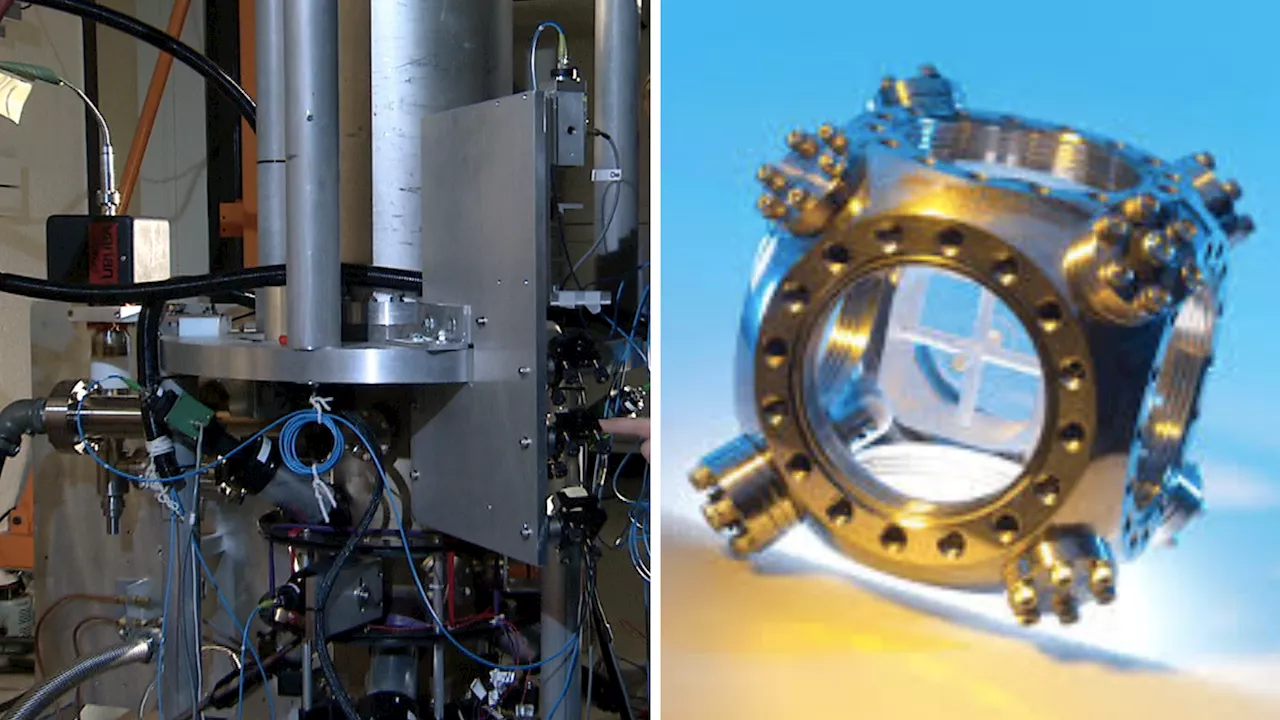Researchers have now found a way to make nuclear clocks a thousand times less radioactive and more cost-effective, thanks to a method creating thin films of thorium tetrafluoride (ThF4).
Scientists in the United States have made significant achievements for the development of a practical nuclear clock . A team of researchers, led by JILA and NIST Fellow and University of Colorado, found that physical vapour deposition of thorium-229 could reduce the amount of this expensive and radioactive isotope needed to make a timekeeper.
But the development of such clocks has been challenging as thorium-229, one of the isotopes used in nuclear clocks, is rare, radioactive, and extremely costly to acquire in the substantial quantities required for this purpose.clocks a thousand times less radioactive and more cost-effective, thanks to a method creating thin films of thorium tetrafluoride .marks a potential turning point in the development of nuclear clocks.
“As a standard of frequency a solid state clock is not very good because it’s affected by the environment. As soon as we know the frequency very accurately we will do it with ions, but that has not been done yet,” added Flambaum.
United States Latest News, United States Headlines
Similar News:You can also read news stories similar to this one that we have collected from other news sources.
 South Korean Researchers Develop Self-Extinguishing, Explosion-Proof Solid-State BatteryDGIST researchers have created a groundbreaking solid polymer electrolyte battery with enhanced safety features and longer lifespan.
South Korean Researchers Develop Self-Extinguishing, Explosion-Proof Solid-State BatteryDGIST researchers have created a groundbreaking solid polymer electrolyte battery with enhanced safety features and longer lifespan.
Read more »
 Boehringer Ingelheim Seeks PostDoc Researchers for Parapoxvirus-Based Cancer Vaccine PlatformBoehringer Ingelheim's ViraTherapeutics is offering a PostDoc grant opportunity through opnMe to investigate the mode of action of parapoxvirus-based cancer vaccines. Successful candidates will develop research proposals focusing on optimizing the vaccine platform and improving its therapeutic efficacy.
Boehringer Ingelheim Seeks PostDoc Researchers for Parapoxvirus-Based Cancer Vaccine PlatformBoehringer Ingelheim's ViraTherapeutics is offering a PostDoc grant opportunity through opnMe to investigate the mode of action of parapoxvirus-based cancer vaccines. Successful candidates will develop research proposals focusing on optimizing the vaccine platform and improving its therapeutic efficacy.
Read more »
 Fewer than 1 in 1,000 US adolescents receive gender-affirming medications, researchers findFewer than 1 in 1,000 U.S. adolescents with commercial insurance received gender-affirming medications during a recent five-year period.
Fewer than 1 in 1,000 US adolescents receive gender-affirming medications, researchers findFewer than 1 in 1,000 U.S. adolescents with commercial insurance received gender-affirming medications during a recent five-year period.
Read more »
 Researchers boost chemotherapy uptake in breast cancer treatment with localized magnetic fieldsResearchers have developed a non-invasive method to improve the effectiveness of chemotherapy while reducing its harmful side effects.
Researchers boost chemotherapy uptake in breast cancer treatment with localized magnetic fieldsResearchers have developed a non-invasive method to improve the effectiveness of chemotherapy while reducing its harmful side effects.
Read more »
 Ancient Roman Lead Pollution Dropped IQs, Researchers SayNew research reveals that lead pollution from ancient Roman silver smelters likely caused a significant drop in average IQ among the population. The study, using ice cores from Greenland as a historical record, highlights the widespread impact of industrial pollution even 2,000 years ago.
Ancient Roman Lead Pollution Dropped IQs, Researchers SayNew research reveals that lead pollution from ancient Roman silver smelters likely caused a significant drop in average IQ among the population. The study, using ice cores from Greenland as a historical record, highlights the widespread impact of industrial pollution even 2,000 years ago.
Read more »
 Researchers discover numerous dinosaur footprints in a UK quarryThe find is thought to date back to the Middle Jurassic Period (around 166 million years ago), and shows multiple dinosaur trackways.
Researchers discover numerous dinosaur footprints in a UK quarryThe find is thought to date back to the Middle Jurassic Period (around 166 million years ago), and shows multiple dinosaur trackways.
Read more »
